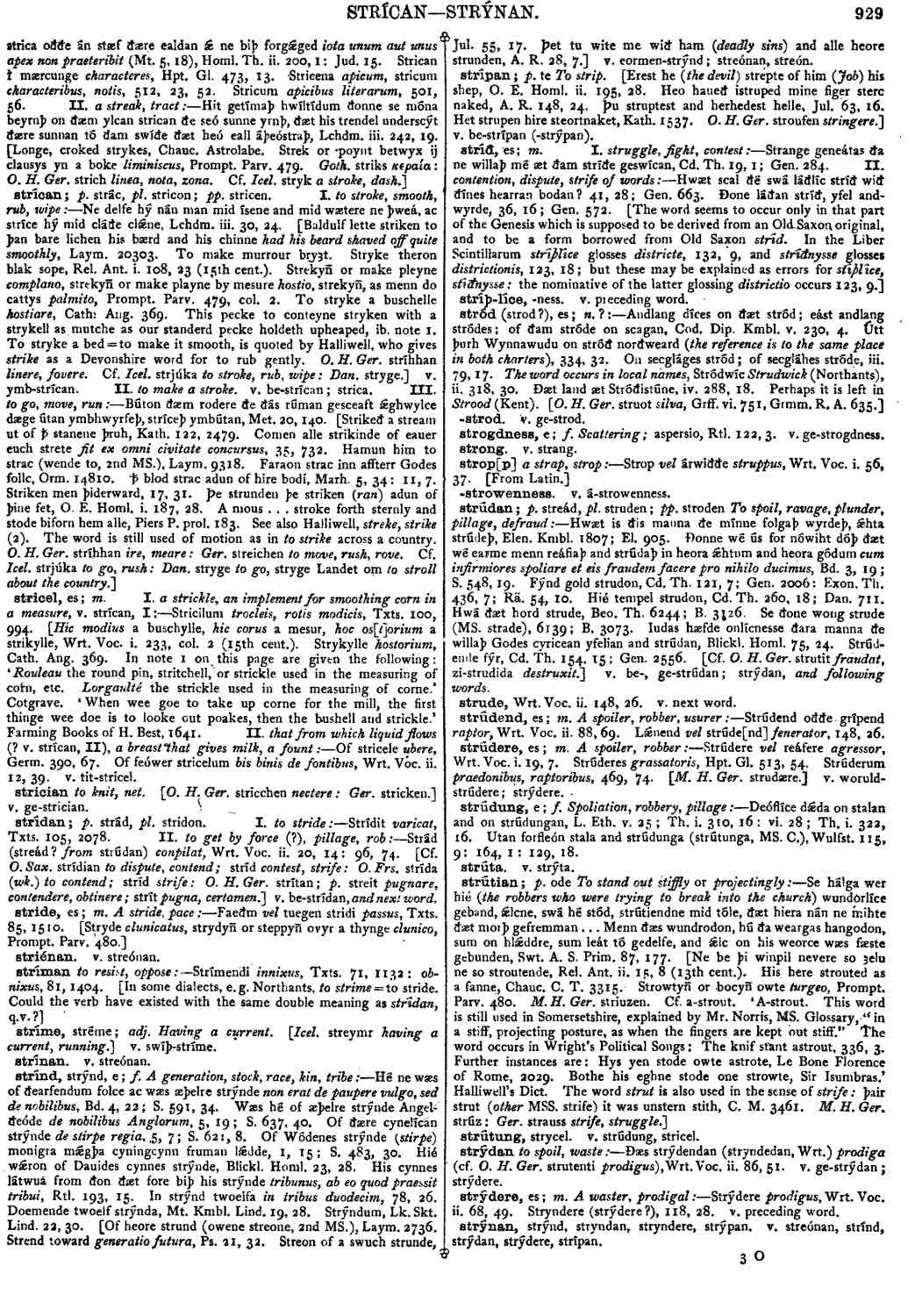strútian
- verb [ weak ]
-
Se hálga wer hié (
the robbers who were trying to break into the church
) wundorlíce geband, ǽlcne, swá hé stód, strútiendne mid tóle, ðæt hiera nán ne mihte ðæt moþ gefremman . . . Menn ðæs wundrodon, hú ða weargas hangodon, sum on hlǽddre, sum leát tó gedelfe, and ǽlc on his weorce wæs fæste gebunden,- Swt. A. S. Prim. 87, 177.
Bosworth, Joseph. “strútian.” In An Anglo-Saxon Dictionary Online, edited by Thomas Northcote Toller, Christ Sean, and Ondřej Tichy. Prague: Faculty of Arts, Charles University, 2014. https://bosworthtoller.com/29202.
Checked: 0